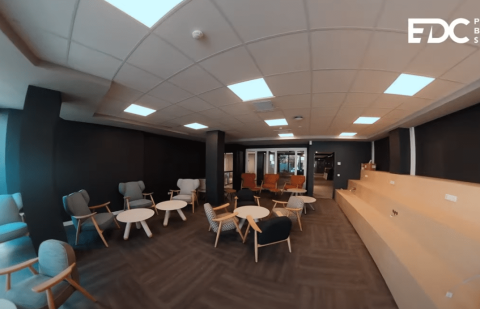
Upskilling : how to acquire new skills ?
How can you stay on top of your job when it is constantly evolving and requires you to constantly acquire new skills ? practicing upskilling, one of the major RH trends of the moment ! Upskilling is much more than a simple improvement: it consists in continuously increasing one’s skills in order to remain at the cutting edge and better anticipate the evolution of one’s profession. Do you also want to progress ? This article should help you.
What is upskilling ?
Upskilling refers to the act of training to improve one’s skills and acquire new ones. This strategy has become essential, particularly because the digitization of professions has profoundly changed the world of work, and has affected a great many employees in all areas of activity.
For the employer, upskilling is a must: it is the best guarantee to benefit from a qualified workforce, which will help the company to remain successful. Skill enhancement allows the company to fill vacant positions without additional recruitment, while creating opportunities to strengthen employee skills.
For the employee, upskilling can offer solid opportunities to evolve within the company and preserve his or her “employability”. Like all learning, skill building also contributes to employee reassurance and job satisfaction.
Upskilling allows you to acquire specific technical skills, but also to improve your soft skills, such as creativity, analytical capacity, initiative and of course a taste for new technologies.
The implementation of an upskilling strategy can make use of various devices :
- Distance learning, delivered through virtual or online courses.
- Specific training on site.
- Internal coaching between colleagues.
- A mentoring program.
Why foster skills development ?
Keeping pace with technological advances is a challenge for companies of all shapes and sizes. While technology creates powerful business opportunities, it also has the potential to create skill shortages, particularly in the manufacturing, healthcare and construction sectors, where demand for skilled workers is particularly high.
How can employers combat this skills gap while retaining their current workforce ? The ability of a company to train its employees to broaden their skills creates a significant competitive advantage in most economic sectors open to competition.
The development of skills also brings many benefits to the employee: increased chances of promotion and better salary, better well-being, development of leadership and initiative…
Upskilling and reskilling, what is the difference ?
Upskilling is an “increase in skills” that allows for the reinforcement of one’s know-how, whereas reskilling is more a “requalification of skills”. It is not aimed at improving oneself, but rather at acquiring new skills, for example in the case of a professional reconversion or a change of position. These two concepts have in common that they allow the company to improve the capabilities of its employees to strengthen its competitiveness.
Upskilling focuses on continuous training to improve one’s performance in one’s job, in order to adapt to market changes. Reskilling doesn’t just reinforce a skill, it adds new ones to allow the employee to move to a different position within the company, or for the job seeker to change jobs. Reskilling is particularly used by companies that are unable to recruit candidates with the necessary skills for the position to be filled. In this case, they take charge of the new recruits, which they train completely to enable them to acquire a new professional qualification.
It is also sometimes referred to as cross-skilling, which consists of training an employee to acquire skills outside his or her usual field of work. Cross-skilling increases the versatility of the employee, and allows the company to have more flexible profiles.
Why is upskilling important ?
The most qualified employees are the hardest to keep, as they are always on the lookout for the best opportunities and can leave at any time. Turnover is expensive, and it is more profitable for the company to invest in internal training than to multiply recruitment phases.
The employer-employee relationship has changed a lot in recent years, and employees expect more from their companies than ever before. The main advantage of upskilling is that it greatly improves employee motivation: it shows that the company believes in them, and thus strengthens loyalty. Employees who are offered training and development opportunities feel better and have a better vision of their future within the company.
Finally, upskilling is a strong signal from the company in terms of innovation, modernity and quality of life at work. It illustrates its ability to support expert profiles, giving them the means to better manage their careers.
Do you also want to acquire new managerial and strategic skills to reach high level management positions in Human Resources ? Découvrez le Master of Science Human Resources and Change Management of the EDC Paris Business School.
NEWS
SAVE THE DATE
To know our latest news
Your campus at La Défense !
29 09 2021 | Our news
Watch a video of your new campus in the heart of La Défense
Le Parisien 2021 ranking of business schools with Master's degrees
19 05 2021 | Competition I Student I Our news
EDC Paris Business School takes 6th place in the ranking of "Ecoles post-bac".

